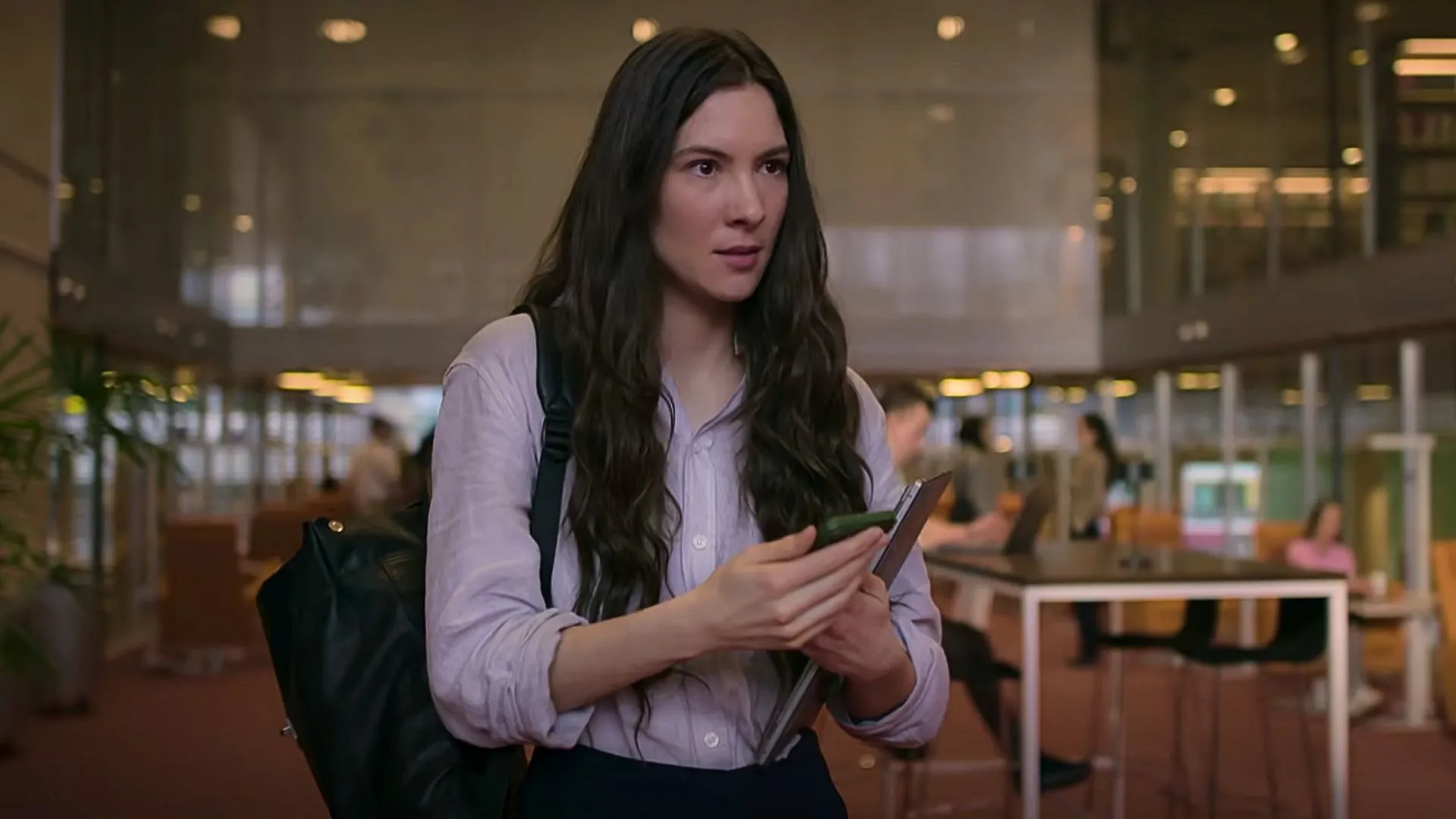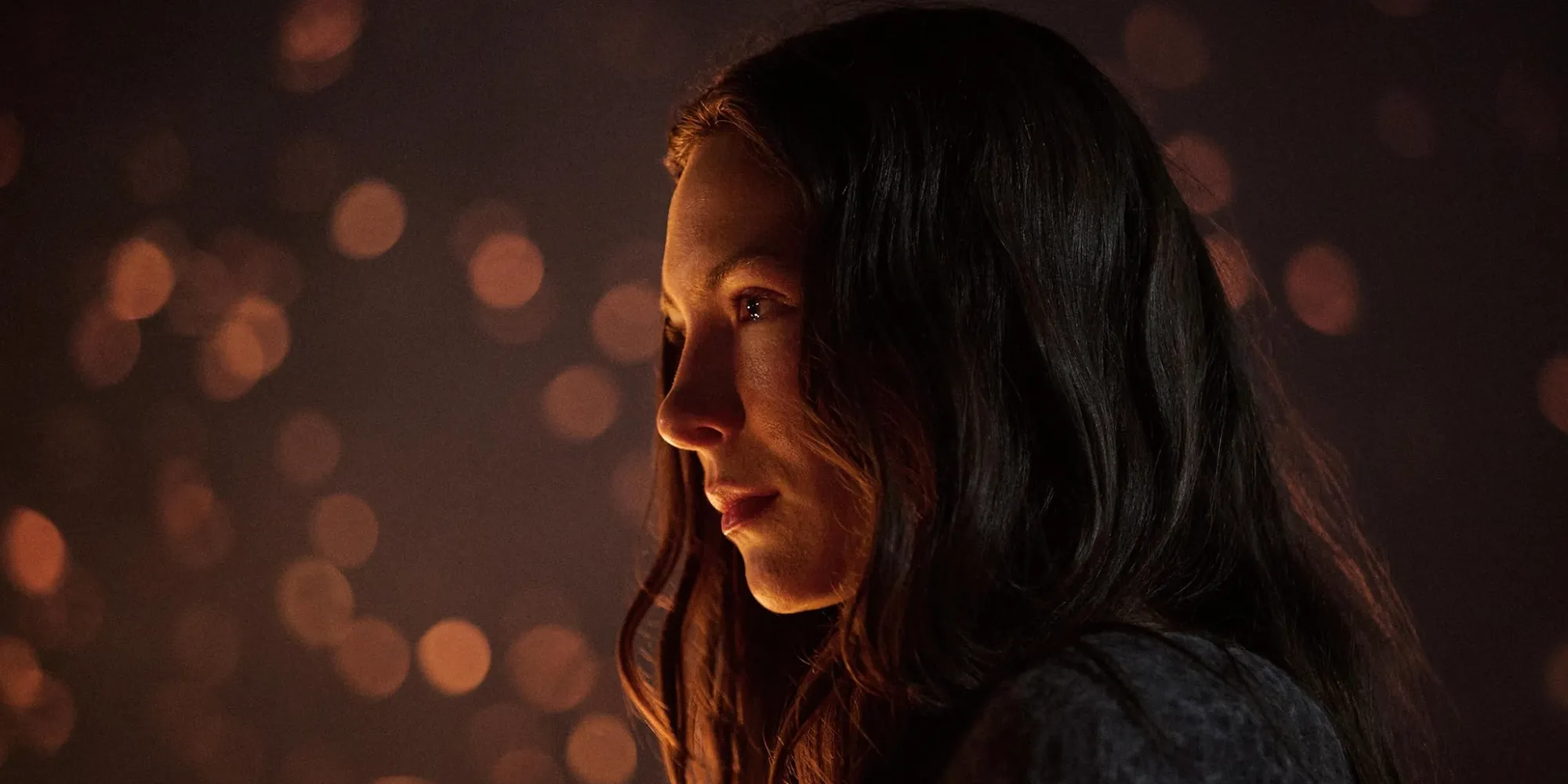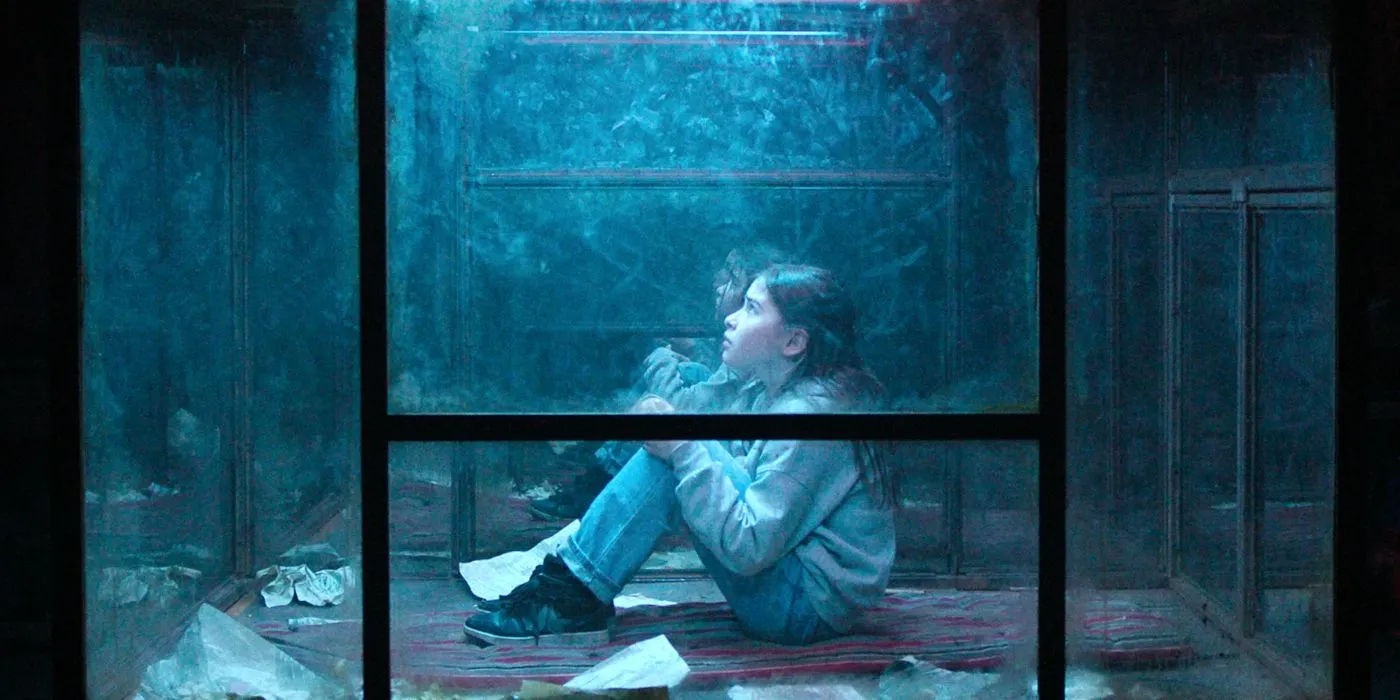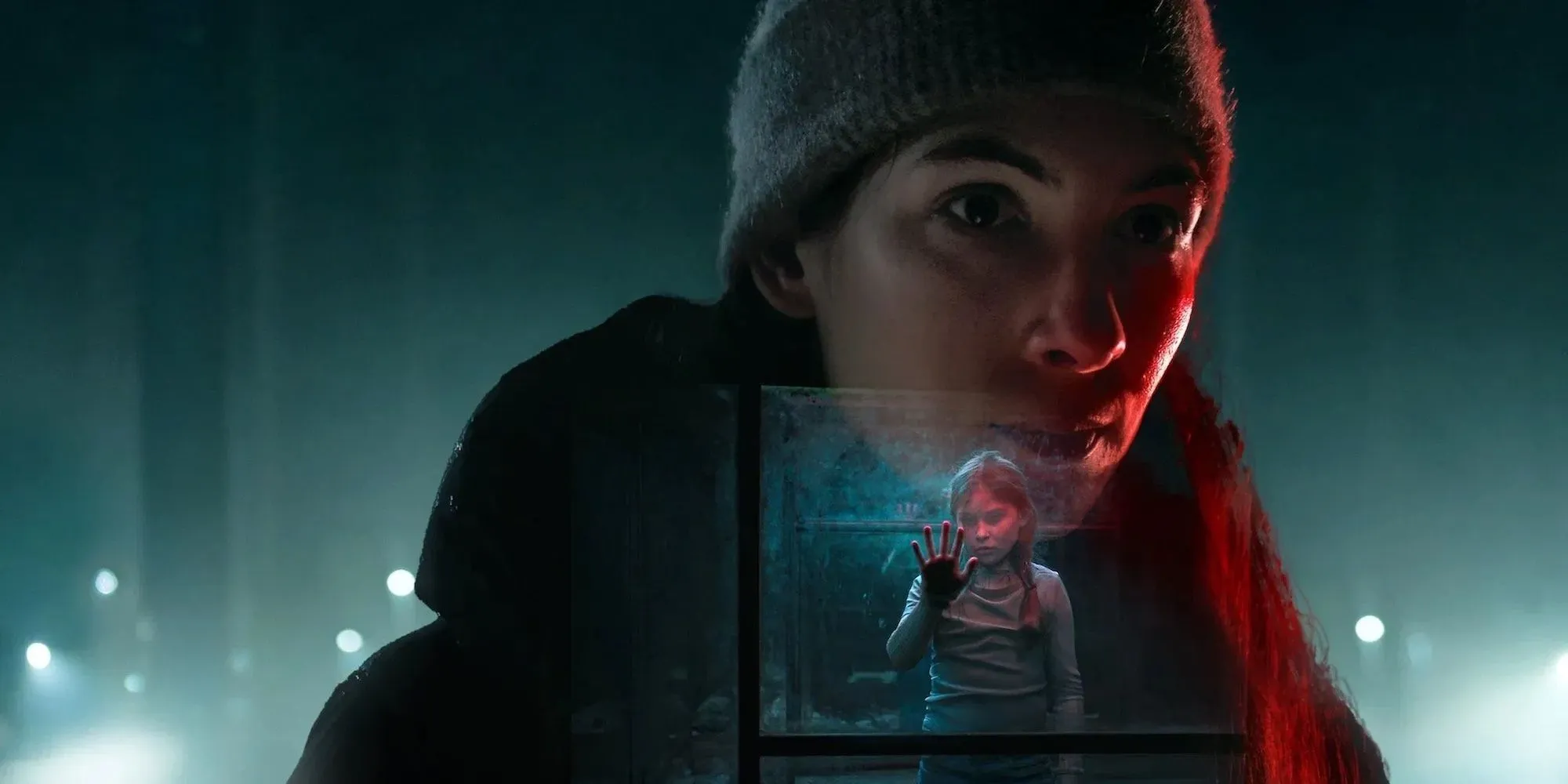A slender silver barrier encircles a small Swedish village, confining memories and secrets under its transparent grasp. “The Glass Dome” presents a curious mix of Scandinavian crime and dystopian suspense that explores the haunting return of a criminologist to her reclusive hometown following a personal loss.
In this narrative, a woman with a troubled past is compelled to confront repressed events linked to her own early captivity within a glass enclosure—a circumstance that now mirrors a fresh disappearance among the local youth. The series interlaces a quiet, rural investigation with an underlying narrative of a society enclosed by both physical and psychological limits. Against a wintry backdrop and amid the rustic isolation of a close-knit community, the directional choices craft an atmosphere heavy with tension and latent menace.
Every frame paints the eerie quiet of village life in conflict with emerging modern dilemmas, the muted colors and shifting light underscoring the stark contrast between the apparent tranquility and the undercurrent of suppressed treachery. This examination will unravel plot complexities, examine character contours, and probe the layered visual design that complements the societal tableau imposed by the dome’s silent, watchful presence.
Architects of Confinement: Plot, Narrative Structure, and World-Building
The narrative unveils a dual-layered mystery, centering on criminologist Lejla’s return to her secluded hometown following the passing of her adoptive mother. Her arrival is marked by the perplexing disappearance of a close friend’s daughter, a case that bears the eerie imprint of her own childhood ordeal within a transparent cage-like structure.
This primary storyline is interwoven with a secondary account where an enormous glass structure emerges as an ominous barrier, creating an isolated realm that raises unsettling questions about control, freedom, and societal oversight.
The series employs a non-linear framework, interlacing flashbacks that gradually reveal painful personal histories and well-guarded village secrets. Each shift in time unfurls layers of buried trauma and hints at unresolved events, such as the haunting echoes of Lejla’s long-past kidnapping and the resurfacing of bygone horrors.
The careful arrangement of episodic investigations with long-form narrative threads ensures a delicate balance between sudden, narrative climaxes and the slow, persistent drip of revelation. This structure is evident in the series’ strategic pacing, where twists and unforeseen turns keep viewers engaged without sacrificing the integrity of the unfolding mystery.
The construction of the series’ environment lends significant weight to its thematic concerns. The Swedish village—presented with wintry vistas and claustrophobic interiors—emerges as a character in its own right; its historical customs collide with the stark impact of modern disruptions.
The glass dome, in parallel, serves as a visual metaphor for restricted existence, its gleaming surface a constant reminder of an imperious force that monitors and confines. The precise use of environmental details—the muted hues of a snowy landscape, narrow passages that confine movement, and expansive, isolated exteriors—imbues the series with an atmosphere that is both oppressive and strangely controlled.
Narrative techniques such as dual timelines and shifting perspectives enrich this construct, challenging conventional narrative authority while inviting a meticulous re-examination of personal and collective memory.
Fractured Mirrors: Characterization and Performances
Lejla Ness is the force that propels this narrative forward, her story marked by a heavy legacy of early suffering that casts a long, unyielding shadow over every decision she makes. The character is portrayed with an intensity that transforms personal agony into a driving quest for redemption.
Her return to a hometown steeped in history and secrets infuses the investigation into a missing child with both urgency and profound sorrow. Her past—marked by an incident in a glass enclosure—serves as an engine of resolve, blending vulnerability with steely determination and transforming every setback into a test of endurance.
Within the familial network, figures such as her adoptive father, a former law enforcement officer, contribute complexity and nuance. Their support is tempered by inherent conflicts; these relationships provide both succor and complication, casting reflections on duty, legacy, and the pressures of expectation. Members of the local authority further complicate this mosaic, where figures in positions of power display both principled resolve and ambiguous intent, adding tension with each investigative encounter and revealing the intricacies of communal loyalties.
The portrait of a dystopian society is completed by characters who operate on the fringes of an oppressive order—journalists with a keen eye, former soldiers burdened by a hidden past, and others who occupy gray areas between resistance and compliance. These characters generate an environment of mutual suspicion and cautious alliances, each adding distinct layers of interpersonal dynamics to the narrative fabric.
Léonie Vincent’s portrayal is meticulous and measured, infusing Lejla with an authenticity that is both heartbreaking and formidable. Supporting performances contribute with subtle nuances, ensuring that even minor roles resonate with credible emotion and complexity.
The unfolding arc is propelled by moments of raw revelation triggered by traumatic flashbacks, compelling the characters to confront the conflicts between inherited roles and hard-won self-realizations, all within a setting where every gesture and silence conveys the weight of unspoken history.
Symbols of Confinement and Liberation
The narrative unfolds through layers of harsh memory and reactivation, where an early violent separation from innocence becomes the nexus for a mystery in need of resolution. Lejla’s childhood abduction and subsequent incarceration within a transparent cage become the ignition for a drama that sifts through recollected anguish and the weight of long-hidden secrets. The recurrent image of the glass dome operates as both an unmistakable physical barricade and an allegorical vessel for imprisoned recollections, its clear surface mirroring the forbidden recesses of memory and emotion.
In the tightly woven local portrait, the customs and unspoken oaths of a small town secrete a form of social governance that both protects and confines its inhabitants. Old habits and murmured grievances channel community energy into maintaining a rigid order that resists subtle change.
Parallel to this, a wide-reaching crystalline structure appears—a symbol of an all-encompassing system where the public is subject to quiet yet unyielding observation and restriction. The series dissects the tension that exists when individuals strive for self-expression under the shadow of omnipresent control.
The narrative also scrutinizes the search for personal identity amid the remnants of a painful past. Characters are forced to reckon with legacies imposed upon them—burdens inherited through family history and communal expectation—which oftentimes obscure the possibility of forging an autonomous future. The collision between remnant trauma and the yearning for a self-defined existence produces an internal cacophony that is as visually resonant as it is emotionally charged.
A refined visual lexicon underlines these thematic concerns. The play of frigid, open landscapes against the stark confinement of enclosed interiors evokes a striking dualism: the interplay between isolation and the collective, between silence and the hidden clamor of suppressed voices. Each motif—be it the gleaming dome or the shadowed corridors—acts as a probe into the nature of memory, authority, and the ceaseless tension between imposed order and the quiet spark of individual resilience.
Illuminated Confinements: Visual Style, Direction, and Production
The series presents a stunning visual narrative, where expansive shots capture the unyielding isolation of the village and the foreboding presence of the glass structure. Wide-angle views reveal a sparse, snowbound landscape while tight compositions underscore the suffocating interiors. Light is manipulated with careful precision—sterile, bright spaces contrast sharply with the enveloping shadows of the outdoors, heightening the sense of entrapment.
Attention to detail is evident in every meticulously designed set piece. The small-town environment is rendered with historical fidelity, presenting authentic relics of tradition that collide with emerging modern elements. In sequences that invoke dystopian imagery, the glass structure is choreographed as a monumental entity, a constant reminder of strict control and suppressed vitality.
Directorial choices by Lisa Farzaneh and Henrik Björn showcase an artful command over pacing and camera geometry. Their direction maintains a deliberate tempo, with camera movements and calculated framing that merge cerebral tension with suspenseful narrative sequences. The series skillfully oscillates between moments of brooding quiet and sudden, jarring transitions that link fragmented time periods—each cut or edit deepening the enigmatic atmosphere.
A resonant score accompanies the visual language, its measured chords and suspenseful peaks intensifying the ambient anxiety. The editing style reinforces thematic concerns with abrupt shifts, preserving a sensory balance that leaves each frame pregnant with unspoken narrative weight.
Emergent Horizons: Series Potential and Cultural Impact
At the heart of this production lies a deft interplay of narrative intricacy and striking character portrayals, knitting together moments of raw psychological inquiry and futuristic societal control. This series captivates audiences drawn to Scandinavian noir and speculative narratives alike, inviting deep engagement through its exploration of personal trauma set against the pressures of a watchful community.
The tension sparked by enduring mysteries and the exploration of individual suffering amid communal oversight creates fertile soil for narrative evolution. A careful modulation between personal tragedy and institutional dominance suggests fertile ground for future developments, where each unsolved question and shadowed memory may inspire new thematic explorations.
The production’s fusion of dark psychological inquiry with a visionary depiction of authority cultivates enduring artistic momentum and invites reflection on the fragility of human identity under relentless pressure. Ambiguities in character dynamics and lingering narrative puzzles challenge conventional storytelling, hinting at a sustained dialogue around cultural estrangement, inherited legacies, and the ceaseless pull between retaining the past and seeking emancipation.
Full Credits
Directors: Henrik Björn, Lisa Farzaneh
Writer: Camilla Läckberg
Producers: Agnes Blåsjö, Patrick Sobieski
Cast: Léonie Vincent, Johan Hedenberg, Johan Rheborg, Farzad Farzaneh, Ia Langhammer, Bianca Lynxén
Cinematographer: Gustav Danielsson
Editor: Björn Kessler
Composers: Joel Danell, Edvin Nahlin
The Review
The Glass Dome Season 1
The Glass Dome delivers layered narrative and discerning performances that merge psychological inquiry with futuristic societal control. Its striking visual style and intricate storytelling form a study of memory, authority, and human resilience that questions established norms while inviting reflective scrutiny. The production is both ambitious and precise, offering a memorable experience that rewards attentive viewers.
PROS
- Rich narrative layers and complex plotlines
- Striking visual aesthetics and atmospheric direction
- Nuanced character portrayals with emotional heft
- Meticulous production design that enhances the thematic mood
- Thought-provoking exploration of societal control and trauma
CONS
- Intricate storyline may challenge less attentive viewers
- Occasional pacing issues that can disrupt narrative flow
- Some unresolved plot threads might leave questions unanswered




















































